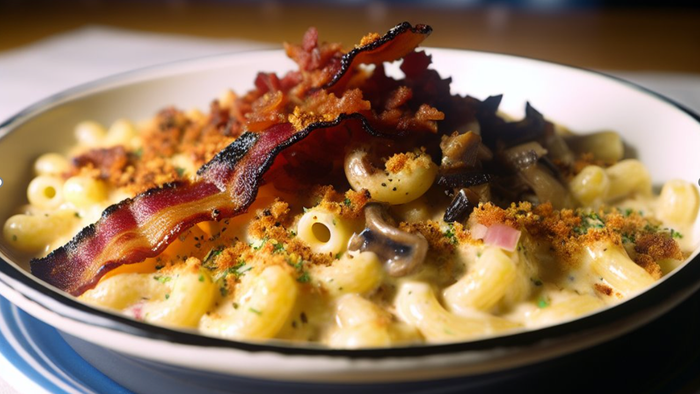A National Culinary Team Embraces the Earth Year-RoundA National Culinary Team Embraces the Earth Year-Round
Three dirty ideas for sustainable cuisine

All great cuisine begins in the dirt. Although this isn’t something we are thinking about as we are enjoying that great cuisine. It is, however, something the team at M Culinary Concepts based in Phoenix, AZ, thinks about all the time.
The team is committed to making a difference in sustainability by starting at the core of the food cycle–with honeybees, worms, and a healthy obsession with dirt.
“We began thinking very seriously about this in 2011 when we began a zero-waste challenge working on the mega-event, the Waste Management Phoenix Open,” says Michael Stavros, Partner and Director of Biz Dev at M Culinary Concepts.
Earlier this summer, Stavros shared his knowledge and systems with several industry professionals during a recent symposium.
From A to bees
The sustainability thought process actually begins well before there is a used plate to recycle.
“Our sustainability focus has shifted from direct efforts such as that, which we do, to a larger focus on the food cycle itself,” Stavros says.
“It all begins with bees,” he explains. “More than 30% of all food we consume is dependent on the pollination the bees create.” And with the survival rate of bees in danger, it’s time to do something.
M Culinary Concepts has been eagerly exploring avenues to become beekeepers. Stavros has looked into starting a program on property through Alveole, as well as the possibility of sponsoring a bee colony off-site.
The Canadian company promotes urban beekeeping through partnerships with many types of clients such as hotels, restaurants and corporations to install and maintain beehives on site.
There are also bee support programs that M Culinary Concepts is actively looking into, such as The Beecause Project that offers a variety of grants to schools and non-profit organizations. Through Honey Bee Grants, Pollinator Literacy Grants, and Pollinator Habitat Grants, they strengthen the connection between young people and pollinators.
Arizona Worm Farm
While bees get a lot of media buzz these days, not many want to talk about worms. They aren’t as cute, or endangered, and yet worms are a seriously important part of the food cycle. They help produce vitamin-rich compost that aids in food production.
M Culinary Concepts works closely with the Arizona Worm Farm where sustainability begins by sustaining the life of the worms. The chefs collect food scraps during pre-event food prep and food waste from post-event clean-up and donate them to the worm farm, which then then uses the material to feed the worms.

The team from M Culinary Concepts made a recent trip out to the Arizona Worm Farm where they learned first-hand how worms can contribute to the food cycle. Photo courtesy ©2023 Harley Bonham Photography
Next, the worms are then either:
Fed to egg-laying chickens: The eggs are sold and then proceeds are donated to local charities;
Sold to the public, farmers, and amateur gardeners;
Used to make mulch, which is sold to local farmers, landscapers, and home gardeners.
Waste Not: Food Rescue
The most ultimate part of the food cycle is the end results–people. There is so much waste at events, in restaurants, and at hotels that could go to feeding those in need. Waste Not is a program that M Culinary Concepts supports by collecting excess food from events. This is food that is never served or exposed to the public, the team then brings it back to the commissary and gets it ready for pick up. Waste Not then picks it up the next morning and distributes it the same day to shelters, facilities, and charities that feed Arizonans contending with food insecurity.
Every pound of rescued food feeds at least 1.25 people and M Culinary Concepts has donated 48,000 pounds so far in 2023.
Food professionals, such as M Culinary Concepts, are at the intersection of agriculture and environment. When it comes to the future of food and our planet, playing in the dirt is very serious business these days.





